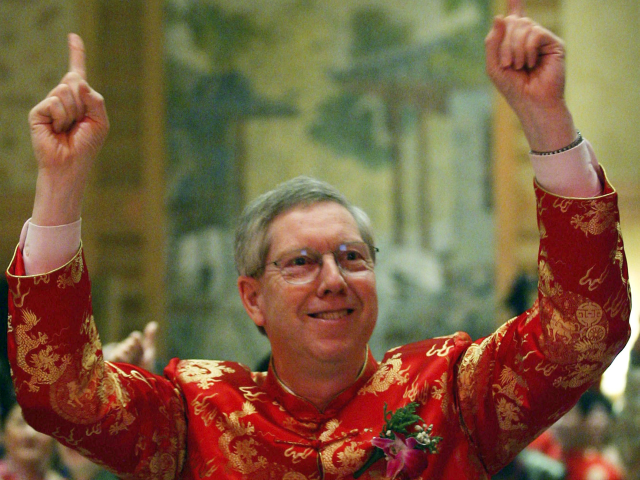The incoming chairman of the British Broadcasting Corporation (BBC) said not enough viewers trust the media giant as he promised to commission “scientific” research to ensure its coverage is impartial.
Speaking to MPs on Tuesday, Sir David Clementi (pictured) said the media was now in an “era of fake news” and that people must view the corporation as unbiased.
Sir David said he would ensure “impartiality, independence and accuracy” would be top of the BBC’s agenda in its coverage of Brexit, amid accusations the corporation had a pro-Remain bias during and after the referendum campaign.
He said he would ask for “scientific” research to monitor this impartiality, although did not go into details as to exactly what he meant.
Sir David will head a new board that replaces the BBC Trust as the corporation’s main governing body. He said that board would call Director-General Lord Hall and Director of News James Harding to explain how they are combating bias.
“The board is bound to inquire… exactly how they are seeking to achieve impartiality. I presume there has been some work after the Brexit referendum on how well the BBC has achieved this,” Sir David said.
He was also asked about the appointment of former Labour MP James Purnell as Director of Radio, but insisted no one with a “political agenda” would be appointed to senior posts in the corporation.
“There should be open competition for all senior appointments and one of the tests will be political independence,” he said.
Referring to the corporation’s coverage of the Brexit debate, he said it did a “good job in a difficult set of circumstances”. However, he acknowledged that a poll showing only 58 per cent of people trusted the BBC needed to be improved.
“The BBC is nothing if it doesn’t carry the trust of the people to be impartial and accurate.
“Above all the BBC needs to be seen as the medium of record in an era of fake news.”
Research in October found the listeners to BBC Radio 4 were two-and-a-half times more likely to hear a pro-EU speaker than an anti-EU speaker.
News Watch analysed a group of 31 Radio 4 programmes. They concluded: “There were no attempts in any programme to explore the benefits of leaving the EU, but conversely, Brexit came under sustained negative attack.
“This was reflected in the balance of contributions and comment contained within the items. Analysis by News-watch shows that only 23 percent of contributors in the programmes as a whole spoke in favour of Brexit, against 58 percent in favour of Remain and 19 percent who gave a neutral or factual commentary.”

COMMENTS
Please let us know if you're having issues with commenting.